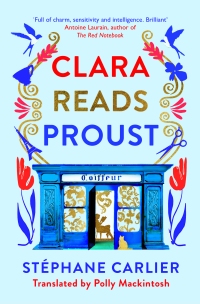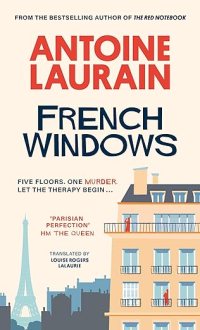“French artists in fiction: four lives, four authors”
Post webinar questions and answers
At the beginning of May, France Book Tours organized a webinar entitled “French artists in fiction: four lives, four authors”. You can watch it by clicking on the link
Since then, two of these authors have won Indie Reader Discovery Awards.
Our listeners asked several excellent questions during the webinar. We didn’t have time to answer to all of them, so we asked our four authors to send us their answers:
What was the biggest challenge in writing a book that includes real historical figures and places and fictional characters and places?
 Linda Lappin
Linda Lappin
In any set of historical events, there are facts that can be researched and pieced together – although sometimes fragments of information may be in conflict with each other. Memory – collective or individual — is fallible, and historical records come down to us selected, filtered, picked over and interpreted by previous generations. There are also gaps and shadows in the lives of historical figures and in records of events themselves.
It’s up to the novelists and film makers to fill in the gaps and provide the missing links. When writing a historical novel, you try to get your facts right, and build a solid and believable background, but you need to feel free to enter in the spirit of the characters, to breathe life into them. By leaps of imagination, you identify with people of another era and immerse yourself in the Zeitgeist. I think this is the most challenging thing.
 Drema Drudge
Drema Drudge
The biggest challenge in writing a novel that includes real historical figures and places and fictional characters and places was trying to keep it plausible. These figures, both real and imaginary, had to fit into the time and place represented and couldn’t express totally modern sensibilities, and yet sometimes I gave them a bit of a modern viewpoint because I needed to make my point. I tried to make the imaginary characters mesh with the real ones in ways I thought they might have met and interacted.
For instance, Willie was not a real character, and yet he seemed entirely believable to me. Victorine would have been drawn to someone like him, would have had mixed feelings for him the same way she did with practically everyone else. And he was the sort of person who was good for her because he had no expectations.

Joe Byrd
Accuracy. If you don’t get all of the facts correct down to the smallest detail, someone is sure to call you on it. This will add to confusion to the reader and loss of reputation of the author. Keeping the timing straight was my biggest challenge. Since I didn’t start with a time line for events, I had to go back an rewrite sections to get the timing and elapsed time correct. I won’t make this mistake again.
How did you balance becoming a writer with your regular daily life?

Lilianne Milgrom
Balance is always hard. It’s a juggling act. Something had to give, and that turned out to be my art practice. All my creative energies were directed towards writing the novel. I work well very late at night because I crave absolute silence and hate distraction when I’m writing. Thank you for asking!
Linda Lappin
I retired only a year ago, a few weeks before the pandemic. I worked full time for 39 years as a language teacher in Italian universities, and for 22 of those years, I was a commuter on very slow trains. I had to take advantage of every minute for my writing. Fortunately my schedule varied over the semesters, there were teaching weeks and exam weeks, leaving blocks of free time. it was possible to organize my life to have writing and editing time in my off hours and on my free days. But it’s a challenge.
Drema Drudge
Balancing being a writer with my everyday life is sometimes easy, sometimes difficult. My husband was my patron saint for a time and told me to leave my day jobs (I was teaching and freelance writing) and finish writing Victorine! So I did. It was both a joy to write every day and guilt inducing. I worried that I was being allowed to live my dream at my husband’s expense. He was totally for having me write, and I will never forget his generosity or how he supported me in every way.
I’m back to teaching a bit and now I’m working in book marketing. I’m having to relearn how to balance my writing and working life. It’s not easy. When I’m doing one thing, I’m thinking I should be doing something else. But I’m beginning to practice a method called Monday Hour One where you write down all that you want and need to do for the week and then you schedule in your free time first and after that everything else. I think this could work, once I get used to it. But in my case, I may end up scheduling in my writing time first and then my free time. Because often what I’d choose to do with my free time is write!
Joe Byrd
That was easier because I wrote during the pandemic lockdown. I wrote in any bit of time I could find between caring for an ill wife and daily chores.
How do you stop researching and begin writing?
Lilianne Milgrom
It’s a great question because so many historical novelists don’t want the research to stop because we keep digging up the most amazing little snippets that we want to incorporate into the story. It’s a particularly sweet feeling to slip a little snippet in knowing the readers may or may not realize it’s based on fact! In my case, I was a history major and love to delve into the past. But at some point there is just information overload and you want to start telling the story. It took me years to come to that point!
Linda Lappin
It’s like the cocoon of a butterfly. You have spun it around you and puffed it out, and inside unbeknownst to anyone, a transformation is taking place, things are knitting together. And the moment just comes when what’s inside has to break out and fly away. It’s instinctive really. It just happens.
Drema Drudge
I have a historical writer friend who says once she has researched enough she knows it and she begins writing right away. It’s a struggle for me, knowing when to stop researching.
In my case, what we know about Victorine is limited, so there was only so much direct research I could do. But of course I studied all the way around her, history, art, culture, war, and I had to eventually start writing and then only research when I found a gap.
You can always do more research. At some point, you have to say that you know the story you are going to tell, and you plunge in.
Joe Byrd
You don’t. You finish the biggest part of your research when you think you know enough about the character and situation to make sense of the story. But you never really finish researching. Researching during the writing process is much more focused on individual details that are important to the story. You must delve into details and make sure you are making sense of them. If not, someone will call you on them. The devil is in the details is a constant mantra.
What do you think of Orlan’s take on L’Origine, called L’Origine de la Guerre, exhibited at the Musée d’Orsay?
Lilianne Milgrom
I LOVE Orlan’s take on L’Origine. She is spot on and I think her painting is conceptually brilliant. The titles of the two paintings reflect the gender differences in a nutshell!! Thank you for asking!
Linda Lappin
A thought-provoking take on patriarchal power and its ultimate goals.
LET’S KNOW YOUR THOUGTHS ABOUT OUR AUTHORS’ ANSWERS



2 responses to “Post webinar questions and answers”
liliannemilgrom
June 5th, 2021 at 10:10
Four authors, four different takes on each question! That’s what makes each book you read so unique!!
WordsAndPeace
June 7th, 2021 at 16:38
Exactly, so enriching!